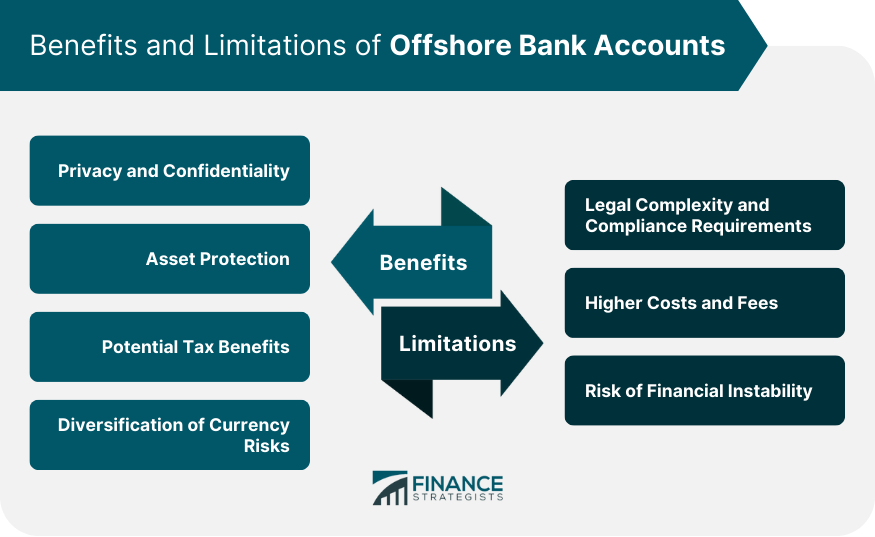Offshore Company Formations Fee Guide: What to Plan For
Wiki Article
Debunking Offshore Business Formations: Just How They Operate and What to Expect
Offshore firm formations can seem complicated and enigmatic. Offshore Company Formations. These entities, often developed for tax benefits and personal privacy, run under unique legal structures. Entrepreneurs might find themselves navigating through a maze of laws and conformity requirements. Recognizing the complexities is crucial for success. What are the actual benefits? What are the possible pitfalls? A closer examination reveals the nuances that could impact decision-making considerablyComprehending Offshore Business: Types and meanings
Offshore business are entities established in a territory beyond a person's or organization's primary country of residence, usually for purposes associated with tax obligation optimization, property protection, or regulatory advantages. These business can take numerous kinds, including limited obligation firms (LLCs), worldwide business companies (IBCs), and offshore depends on. Each kind serves certain functions and interest various requirements.Limited responsibility business offer proprietors with security from personal liability, while global service companies are preferred for their versatility and minimal coverage needs. Offshore trust funds, on the other hand, are utilized mostly for estate planning and property protection.
The selection of jurisdiction greatly affects the company's procedures, as some locations use much more favorable legal structures and privacy defenses. Offshore Company Formations. Understanding the differences between these types is vital for businesses and individuals thinking about offshore structures, as each choice lugs various implications for governance and compliance
The Benefits of Developing an Offshore Firm
Establishing an offshore business can give many benefits, especially for those looking for to enhance their monetary approaches and protect their possessions. One substantial advantage is tax obligation optimization; many jurisdictions use favorable tax rates or exceptions, permitting companies to maintain even more earnings. In addition, offshore companies can supply a layer of personal privacy, shielding the identities of owners and investors from public analysis.Another advantage is asset protection. By putting properties in an overseas entity, individuals can safeguard their wide range from potential legal cases or political instability in their home nations. This framework likewise promotes global service operations, enabling much easier access to diverse customers and international markets.
In addition, the facility of an offshore company can enhance integrity and reputation, attracting clients that value global service practices. Generally, these benefits make overseas business formations an appealing choice for individuals and organizations aiming for financial development and protection.
Key Considerations Prior To Forming an Offshore Entity
Prior to creating an overseas entity, a number of critical elements have to be analyzed. Lawful compliance requirements, tax obligation effects and advantages, in addition to jurisdiction choice, play a significant function in the decision-making procedure. Understanding these factors to consider can help individuals and organizations browse the complexities of offshore business formations effectively.
Lawful Conformity Needs
When considering the development of an offshore entity, understanding lawful compliance needs is necessary to guarantee adherence to both regional and global regulations. Prospective entrepreneur must familiarize themselves with guidelines controling company registration, reporting responsibilities, and functional criteria in the chosen jurisdiction. This includes confirming the lawful needs for supervisors and shareholders, in addition to making certain conformity with anti-money laundering (AML) and know-your-customer (KYC) regulations. Furthermore, organizations need to remain aware of any licensing demands certain to their market. Involving regional legal and economists can offer useful insights, making sure that all needed paperwork is prepared and submitted properly. Ultimately, extensive understanding of legal compliance helps reduce risks and fosters a lasting overseas procedure.Tax Obligation Ramifications and Benefits
Numerous company owner consider the tax obligation ramifications and benefits of forming an overseas entity as a crucial factor in their decision-making procedure. Offshore business can provide significant tax obligation advantages, such as reduced company tax rates, exception from specific local tax obligations, and the capability to postpone tax obligations on foreign income. These advantages can cause enhanced profitability and cash money circulation, making offshore structures appealing for global business procedures. Furthermore, the potential for tax obligation treaties may additionally reduce tax obligation obligations. It is important for service owners to recognize the complexities included, consisting of compliance with both regional and global tax obligation laws. Engaging with tax specialists is recommended to browse these details effectively and ensure ideal tax planning methods.Territory Selection Variables
What factors should one think about when choosing a territory for overseas firm development? Trick factors to consider consist of tax obligation performance, governing setting, and political security. Territories with desirable tax obligation regimes can significantly affect earnings. The regulative landscape must supply flexibility and ease of compliance, permitting reliable organization procedures. Political security is vital, as it guarantees the security of possessions and continuity of operations. Furthermore, the track record of the territory can impact customer trust fund and organization partnerships. Accessibility to financial services and the availability of professional assistance solutions are likewise crucial. Recognizing local regulations relating to possession, reporting, and privacy demands is necessary to identify that the offshore entity lines up with the service proprietor's goals and legal commitments.The Process of Establishing an Offshore Firm
Establishing an offshore firm involves a series of critical steps that need mindful preparation and compliance with worldwide regulations. An individual need to choose a suitable territory that straightens with their company goals and offers desirable tax obligation benefits. Complying with territory option, the following action is to pick an unique company name and prepare the necessary documentation, including short articles of consolidation and shareholder agreements.Once the documentation prepares, it must be sent to the pertinent authorities in addition to the needed charges. After approval, the company will certainly obtain a certificate of incorporation, officially developing its lawful existence. The individual must after that open up a company bank account to help with financial transactions.
Maintaining an overseas business involves sticking to recurring compliance needs, such as annual coverage and tax obligations, which differ by jurisdiction. Recognizing each step is essential for an effective offshore firm formation.

Governing and legal Framework for Offshore Firms
While developing an offshore business can offer considerable advantages, it is vital to navigate with the intricate legal and regulative framework that governs such entities. Each jurisdiction has its own collection of regulations you can look here that determine everything from business development to taxes and conformity needs. These regulations are developed to protect against illegal activities, such as money laundering and tax evasion, and commonly call for comprehensive paperwork and transparency.Secret aspects of this structure consist of the requirement of assigning neighborhood supervisors, keeping a licensed workplace, and sticking to yearly coverage commitments. Additionally, many jurisdictions impose specific licensing requirements for specific service tasks. Recognizing these lawful terms is important for making certain conformity and mitigating risks connected with fines or lawful disagreements. Consequently, engaging with lawyers that focus on offshore companies can aid in maneuvering through this elaborate landscape, ultimately assisting in a certified and successful offshore organization procedure.
Usual Misconceptions Concerning Offshore Business
Many individuals hold mistaken beliefs about offshore companies, commonly equating them with tax evasion and prohibited tasks. Nevertheless, it is necessary to identify that these entities can run legally within a framework created for legitimate organization methods. Making clear the legal condition of overseas firms can help eliminate these misconceptions and advertise a more precise understanding of their objective.Tax Obligation Evasion Misconceptions
Despite the growing appeal of overseas firms, misunderstandings regarding their usage for tax obligation evasion linger. Numerous people erroneously believe that establishing an offshore entity is entirely a way to prevent tax obligations. Offshore companies are typically used for reputable objectives, such as property defense, global service growth, and investment diversification. The perception that all offshore tasks relate to immoral tax evasion neglects the complexities of global tax obligation guidelines and compliance requirements. Additionally, the vast bulk of overseas jurisdictions have actually implemented measures to battle tax obligation evasion, promoting transparency and details exchange. This mischaracterization can prevent genuine companies and investors from exploring the potential advantages of overseas firm formations while continuing an unfavorable stigma bordering these entities.Legal Standing Clarified
The legal standing of overseas companies is typically misunderstood, bring about a range of mistaken beliefs. Many think these entities operate in a lawful gray area, thinking they are unethical or inherently prohibited. In truth, overseas business are reputable companies formed under the legislations of details jurisdictions, made for different factors, including possession protection and market growth. An additional typical misconception is that overseas companies avert tax obligations completely; however, they undergo the policies and tax commitments of their home countries. Additionally, some people assume that overseas business can be conveniently manipulated for cash laundering or illegal tasks. While misuse can take place, a lot of territories impose rigorous compliance and openness regulations to minimize such risks, guaranteeing that offshore business run within lawful structures.
Managing and Operating Your Offshore Business Effectively
Efficiently handling and running an overseas firm requires a tactical strategy that stabilizes compliance with regional guidelines and the search of company goals. Successful offshore monitoring entails understanding the jurisdiction's tax laws, reporting demands, and functional laws. Employing regional specialists, such as accounting professionals and lawful experts, can supply indispensable insights right into passing through these complexities.In addition, developing clear communication channels and operational procedures is crucial for preserving effectiveness. Utilizing technology for task monitoring and partnership can enhance productivity, while normal performance evaluates guarantee placement with calculated objectives.
Preserving durable monetary records is crucial, as transparency cultivates depend on with stakeholders and complies with international criteria. Being versatile to modifications in legislation or market problems allows overseas companies to pivot properly, ensuring long-lasting sustainability and growth. By sticking to these concepts, company owner can make the most of the benefits of their offshore endeavors while mitigating risks.
Often Asked Inquiries
How Much Does It Expense to Preserve an Offshore Firm Annually?
The expense to preserve an overseas firm annually varies significantly, commonly varying from $1,000 to $5,000, depending on jurisdiction, services needed, and conformity responsibilities. It is vital to consider extra charges for particular demands.Can I Open Up a Savings Account for My Offshore Business From Another Location?
Opening up a checking account for an overseas firm from another location is normally feasible. Needs might differ by territory, commonly demanding documents and confirmation processes, which can complicate the remote application experience for people.Exist Certain Nations Understood for Easier Offshore Business Formations?
Certain nations, such as Belize, Seychelles, and the British why not look here Virgin Islands, are renowned for their positive regulations and structured processes pertaining to offshore firm formations, bring in entrepreneurs seeking performance and privacy in organization operations.
What Types of Services Are Best Fit for Offshore Firms?
Certain companies, such as consultancy, e-commerce, and investment companies, frequently gain from overseas firms as a result of tax obligation benefits, personal privacy, and governing flexibility - Offshore Company Formations. These entities usually prosper in jurisdictions that promote positive service settingsJust How Can I Make Certain Conformity With Neighborhood Regulations When Operating Offshore?
To assure conformity with neighborhood regulations when running offshore, it is necessary to involve lawful professionals, carry out extensive research study on jurisdiction regulations, and preserve transparent financial records, thereby useful link decreasing threats connected with non-compliance.
Report this wiki page